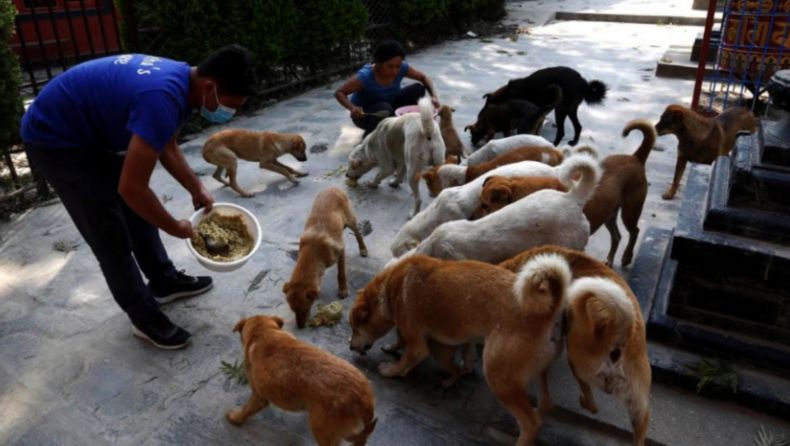To address the stray dogs’ menace issue, Supreme Court said a reasonable solution must be found. Also added if they attack, people who feed them could be held responsible.
Dogs Attack– Senior counsel advocate VK Biju appearing for the Kerala government, said that eight people have died in Kerala since August. He further added, that people who regularly feed dogs, they could be made liable for the dog’s vaccination. Even they need to bear the cost if stray dogs attack people. The court posted the matter for hearing on September 28.
The court’s observation comes while hearing a petition in relation to stray dogs‘ menace in Kerala.
A bench of Justice Sanjiv Khanna and JK Maheshwari said, “Some solutions must be found.”
The top court said that a balance needs to be created between innocent people and to the rights of animals. As Justice Khanna observed, “Let people take care of a dogs if they want, but they have to be marked, not tracked through the chip, I am not in favor of that.” So, people are allowed to feed dogs, but they may keep a number or mark on the dog. It is important to get all the stray dogs vaccinated and sterilized.
Since August, eight people have been died in Kerala Due to stray dogs attack. The advocate also told the court that schoolchildren and women are being attacked by the aggressive dogs on the streets. Besides, he also highlighted the recent death of a 12-year-old girl, Abhirami from Ranni, at Kottayam Medical College Hospital. Also, a 19-year-old college student in Kerala’s Palakkad was dogs attack. The victim died of rabies despite getting vaccinated.
This year so far, one lakh people have been gone through stray dog attacks. Besides, 21 rabies deaths have been found, and five of them had received anti-rabies vaccines. There are some cases of horrific brutality reported against the harmless, homeless stray dogs.
Due to a lack of food, dogs can become ferocious or they can get infections. Furthermore, it added that rabies-infected canines might be put in a care center.
In 2015, the Kerala High Court have passed a judgement to reduce the number of stray dog populations as per local body laws.
1.5 crore dogs attack cases in India
Every year India reports over a 100 rabies and death cases. Since 2019 India has recorded over 1.5 crore animal attack cases. The highest number of cases were reported in Uttar Pradesh (27,52,218), followed by Tamil Nadu (20,70,921), Maharashtra (15,75,606) and West Bengal (12,09,232). At the same time Lakshadweep reported zero dog attacks.
72,775,523 animal bite cases were reported only in 2019.That declined to 46,33,493 in 2020 and 17,01,133 in 2021. Nonetheless, the first seven months of 2022 recorded over 14.5 lakh cases. Tamil Nadu (251,510) and Maharashtra (231,531) reported highest number of cases this year. Dog attack mainly involve stray dogs rather than pets.There has been a rise in cases of dog attacks due to the negative attitudes towards dogs.
Based on a 2019 count, India has 1,53,09,355 stray dogs. The utmost number of stray dogs are found in Uttar Pradesh (20,59,261), Odisha (17,34,399) and Maharashtra (12,76,399). On the other hand, Lakshadweep, Manipur, and Dadra & Nagar Haveli reported zero stray dogs. India has the highest number of the stray animals. This country also reports more than a third of all the rabies-related deaths.
The top court posted the stray dog attack matter for a further hearing on September 28. The court also permitted animal rights groups to negotiate. The bench would also like to hear in detail before passing any orders.
When addressing the most prevalent problems with stray dogs, vaccination and Capture, Neuter, and Release programmes (some programmes combine the two) appear to be the most effective solutions.
Vaccinating stray dogs against diseases should prevent them from infecting people. Dog population should fall as a result of neutering dogs. These claims are supported by the data from such projects.
Between 1982 and 2003, rabies rates in Latin America decreased by 93% as a result of a 1983 rabies vaccination programme run by the World Health Organization (WHO). In Tanzania, other initiatives lowered the rabies prevalence by 93%.
The health and welfare of the stray dogs participating in these programmes also improved, as seen by their “increased coat lustre and quality, improved skin conditions, and fewer parasites and venereal tumours.”













